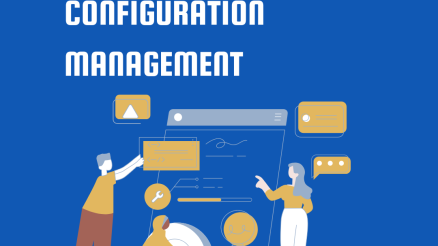Change is a constant reality in organizations, driven by factors such as new technology, shifts in market conditions, changes in regulations, and evolving customer needs.
In order to thrive, organizations must be able to adapt to these changes quickly and effectively.
This is where Change Management comes in.
Change Management is the process of identifying the need for change, defining the desired outcomes, developing a plan for implementation, and managing the transition to the new state.
But it is not always an easy process. It requires effective leadership to successfully navigate through the process. And change management leaders need specific traits to get their job done effectively.
In this blog post, we will learn what is the role of change management leader, what is specific job description of change leader and what skills are required to implement change.
Let’s start reading
Role of Change Management Leader
Change Management leaders play a critical role in driving successful change within organizations.
Their role is to plan, coordinate, and manage the change process, and to ensure that the change is implemented smoothly and effectively.
Here are some specific ways in which Change Management leaders contribute to the success of change initiatives:
Developing and implementing change management strategies
Change Management leaders are responsible for developing strategies that will guide the change process. They work closely with senior leaders to define the scope of the change, identify the stakeholders who will be impacted, and develop a plan for implementing the change.
Communicating changes to stakeholders and managing resistance to change
Change Management leaders are responsible for communicating the need for change to stakeholders, and for managing resistance to the change. They work closely with stakeholders to understand their concerns, and to address those concerns in a way that is consistent with the goals of the change initiative.
Building relationships with stakeholders and developing buy-in
Change Management leaders are responsible for building relationships with stakeholders, and for developing buy-in for the change initiative. They work closely with stakeholders to understand their needs, and to ensure that the change is aligned with those needs.
Conducting impact assessments and risk analyses
Change Management leaders are responsible for conducting impact assessments and risk analyses to identify potential risks and to develop strategies to mitigate those risks. They work closely with senior leaders to develop contingency plans in case the change does not go as planned.
Developing and delivering training programs
Change Management leaders are responsible for developing and delivering training programs to help stakeholders understand the change, and to develop the skills and knowledge needed to implement the change successfully.
Monitoring and reporting on the progress of change initiatives
Change Management leaders are responsible for monitoring the progress of change initiatives, and for reporting on that progress to senior leaders. They use metrics and other measures to track progress, and to identify areas where additional support may be needed.
Change Management Leader Job Description
Here are 15 specific points that could be included in a change management leader job description:
- Develop and implement change management strategies and plans that maximize employee adoption and minimize resistance.
- Collaborate with senior leaders to identify and prioritize change initiatives based on business needs and priorities.
- Build relationships and work closely with stakeholders to identify and address concerns related to the change initiative.
- Conduct impact assessments and risk analyses to evaluate the potential effects of change initiatives on employees, customers, and the organization.
- Develop and deliver communication and training programs that support the adoption of change initiatives and ensure the successful transition to the new state.
- Develop metrics and measures to track the progress of change initiatives and report on the status of those initiatives to senior leaders.
- Identify and manage the risks associated with change initiatives, and develop contingency plans to mitigate those risks.
- Foster a culture of continuous improvement and encourage employees to embrace change as a way to drive growth and innovation.
- Manage resistance to change and help employees to overcome their fears and concerns related to the change initiative.
- Work with cross-functional teams to ensure that change initiatives are integrated with other business processes and initiatives.
- Facilitate change management workshops and training sessions to build change management competencies across the organization.
- Develop and implement change management policies, procedures, and guidelines to ensure consistency and effectiveness across change initiatives.
- Ensure that change initiatives are aligned with the organization’s vision, mission, and values, and that they support the achievement of strategic goals.
- Build and maintain relationships with external change management experts and vendors to stay abreast of best practices and emerging trends in change management.
- Stay up-to-date with industry trends and best practices in change management, and continuously improve the organization’s change management capabilities.
Skills and Qualification for Change Management Leader
Here are some skills and qualifications that could be required for a Change Management leader role:
- Bachelor’s degree in business, management, psychology, or a related field.
- Several years of experience in a change management role or related field, with a track record of successful change initiatives.
- Strong leadership skills and the ability to inspire and motivate others to embrace change.
- Excellent communication skills, including the ability to develop and deliver clear and compelling messages to a variety of audiences.
- Strong problem-solving and analytical skills, with the ability to identify and mitigate risks associated with change initiatives.
- Excellent project management skills, with the ability to manage complex, cross-functional projects and ensure that they are delivered on time and within budget.
- Experience developing and implementing change management strategies and plans, and the ability to customize these plans to meet the unique needs of different stakeholders and initiatives.
- Knowledge of change management methodologies, tools, and techniques, and the ability to apply these effectively in a variety of situations.
- Strong interpersonal skills, with the ability to build and maintain positive relationships with stakeholders at all levels of the organization.
- Experience managing resistance to change and the ability to develop strategies to overcome this resistance.
- Strong facilitation skills, with the ability to facilitate workshops and training sessions that promote understanding and adoption of change initiatives.
- Strong team-building skills, with the ability to build and lead high-performing teams that are focused on delivering results.
- Knowledge of organizational behavior and the psychology of change, and the ability to apply this knowledge to drive successful change initiatives.
- Excellent strategic thinking skills, with the ability to identify opportunities for change that support the organization’s vision and mission.
- Strong business acumen, with the ability to understand the organization’s goals, objectives, and priorities, and to align change initiatives with these priorities.



